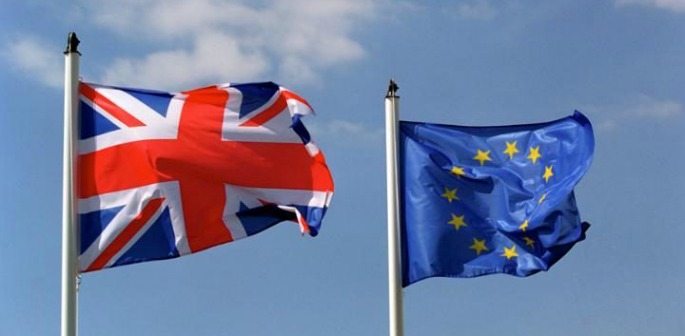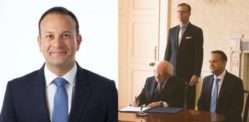"It's never been done before. No country has ever left the EU. "
Nine months after the people of Britain voted to leave the EU, known commonly as Brexit, Theresa May finally triggered Article 50. By doing so she formally started the process of Britain leaving the European Union (EU).
The formal process of triggering Article 50, began with the handing over of a letter from the Prime Minister to Donald Tusk, President of the European Council.
The letter announced Britain’s desire to leave the EU. Thus, it gave notice that they were triggering Article 50 of the Lisbon Treaty, which gave them the right to do so.
When asked about the duration of time it took to trigger Article 50, Harrow’s Conservative Councillor Ameet Jogia said:
“It’s never been done before. No country has ever left the EU. We had to and have to do this properly, to ensure that we strike the right balance.
“I think the Prime Minister did the right thing, and allowed herself and the government time to create a plan.”
Sajid Karim, a Conservative MEP voiced his agreement with Jogia. He said: “The nine months was the right time, it allowed for the government to simplify the task down into manageable stages. We can now view today as the start of a long-term plan to leave the EU.
“We can now begin the process of delivering an amicable solution that satisfies all parties involved.”
Sunder Katwala, Director of Think-Tank British Future, voiced his agreement with both Conservatives.
He said: “The triggering of Article 50 now gives us a chance to move forward. It was right for there to be a period of time between the result and the triggering of Article 50.
“It allowed us to plan, and now we can move forward and move on.”
However, even with the triggering of Article 50, there are some questions that remain unanswered.
Could this lead to further issues?
As Sajid Karim said, the European Parliament will have the final say on the agreement for Brexit. However, nobody is quite sure whether or not the British Parliament will also have a say.
During the campaign, restoring sovereignty to Parliament was a key issue. If Parliament does not get a say, this would be quite worrying.
The triggering of Article 50 left another unanswered question. What happens in regards to travel to and from Europe?
Sunder Katwala stated: “I believe we will be able to negotiate with the EU, I don’t think passports will need to be changed at all. Though other changes and restrictions might apply.”
Conservative MEP Sajid Karim had agreed with Sunder: “I believe we shall be able to negotiate a pragmatic solution with the EU.
“Naturally, Freedom of Movement has come to an end, the right to settle might well have come to an end as well. However, the right to visit, still remains the same.”
The sovereignty of British courts is another issue, that the triggering of Article 50 has highlighted.
Sajid Karim believes that: “We will be remaining within the purview of the European Courts of Justice until we have actually left the EU.
“Once that is done, there will be no direct jurisdiction over issues relating to Britain, only when it relates to something to do with trading with countries inside the EU.”
Sunder Katwala agreed, stating: “For now we are under the purview of the European Court of Justice. However, once we have sorted everything out and have left, the courts in Britain will be the final decision makers for issues in Britain.”
Theresa May has triggered Article 50, thus beginning Britain’s exit from the EU. Certain issues remain unresolved.
The Prime Minister and the EU should solve these issues during exit talks to ensure the best deal for all involved.





























































